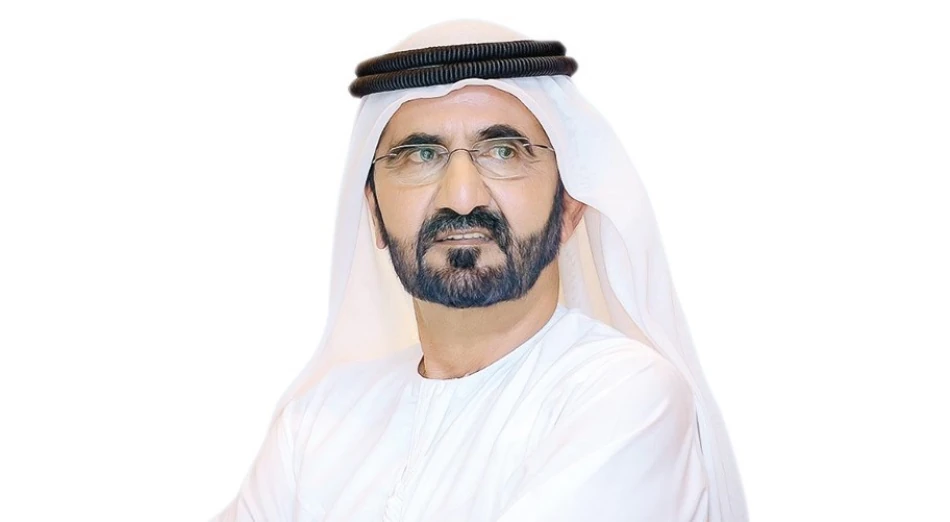
Dubai's Sheikh Mohammed Issues Decree to Enhance Philanthropic Foundation's Impact
Dubai Restructures Sheikh Mohammed's Charitable Foundation with Expanded Global Mandate
Dubai's ruler Sheikh Mohammed bin Rashid Al Maktoum has issued a comprehensive decree restructuring his flagship charitable foundation, streamlining its name and significantly expanding its operational scope both domestically and internationally. The move signals Dubai's growing ambition to position itself as a global hub for philanthropic activities, complementing its established roles in finance and trade.
Strategic Rebranding and Legal Framework
Decree No. 36 of 2025 officially renames the "Mohammed bin Rashid Al Maktoum Foundation for Charitable and Humanitarian Works" to the more concise "Mohammed bin Rashid Al Maktoum Charitable Foundation." This rebranding exercise, while seemingly cosmetic, reflects a broader strategic shift toward operational efficiency and global brand recognition.
The foundation, originally established in 1997, maintains its status as a non-profit public benefit organization with full legal personality and authority to conduct all activities necessary to achieve its objectives. The decree replaces the original 1997 legislation while preserving existing leadership structures and board compositions established in 2023.
Expanded Operational Mandate
Healthcare and Medical Support
The restructured foundation gains enhanced authority to support healthcare programs, including disease prevention initiatives and pharmaceutical provision. This expansion comes at a time when Gulf states are increasingly investing in healthcare infrastructure and medical tourism, positioning Dubai as a regional healthcare hub.
Educational Development
Educational support remains a cornerstone, with the foundation authorized to assist students across schools, institutes, and universities both within the UAE and internationally. This aligns with Dubai's broader vision to become a global education destination, competing with established hubs like Singapore and Hong Kong.
Disaster Relief and Emergency Response
The decree grants the foundation significant authority to organize and participate in relief operations, providing material and moral support to disaster victims globally. This positions Dubai alongside traditional humanitarian powerhouses like Kuwait and Saudi Arabia in regional disaster response capabilities.
Regulatory Integration and Oversight
The foundation operates under the supervision of Dubai's Department of Islamic Affairs and Charitable Activities and the Community Development Authority. This dual oversight structure ensures compliance with local regulations while maintaining operational flexibility for international activities.
The regulatory framework incorporates several existing laws, including Dubai's 2017 Civil Society Organizations Law and the 2015 Fundraising Regulation Decree, creating a comprehensive legal foundation for charitable operations.
Strategic Implications for Dubai's Global Positioning
This restructuring reflects Dubai's calculated approach to soft power projection through organized philanthropy. Unlike traditional Gulf charitable giving, which often operated through informal networks, this formalized structure enables systematic tracking, reporting, and strategic deployment of humanitarian resources.
The timing is significant as regional competitors intensify their humanitarian outreach. Saudi Arabia's recent establishment of the King Salman Humanitarian Aid and Relief Centre and Qatar's expansion of charitable activities through Qatar Charity demonstrate the growing importance of organized philanthropy in regional diplomacy.
Operational Structure and Governance
The foundation's organizational structure comprises three levels: the Supreme President, the Board of Trustees, and the Executive Body. This hierarchical structure mirrors successful international charitable organizations while maintaining the personalized leadership approach characteristic of Gulf institutions.
Government and non-government entities in Dubai are mandated to provide full cooperation with the foundation, ensuring seamless coordination across the emirate's various departments and agencies.
Regional Context and Competition
This restructuring positions Dubai's charitable sector within a broader regional competition for humanitarian leadership. The UAE's humanitarian aid reached $7.21 billion in 2023, according to government figures, with Dubai-based organizations playing an increasingly prominent role.
The foundation's expanded international mandate allows it to compete directly with established regional players while leveraging Dubai's logistical advantages as a global transportation and financial hub. This strategic positioning could prove particularly valuable in rapid-response humanitarian situations where Dubai's connectivity provides operational advantages.
Most Viewed News

 Sara Khaled
Sara Khaled






